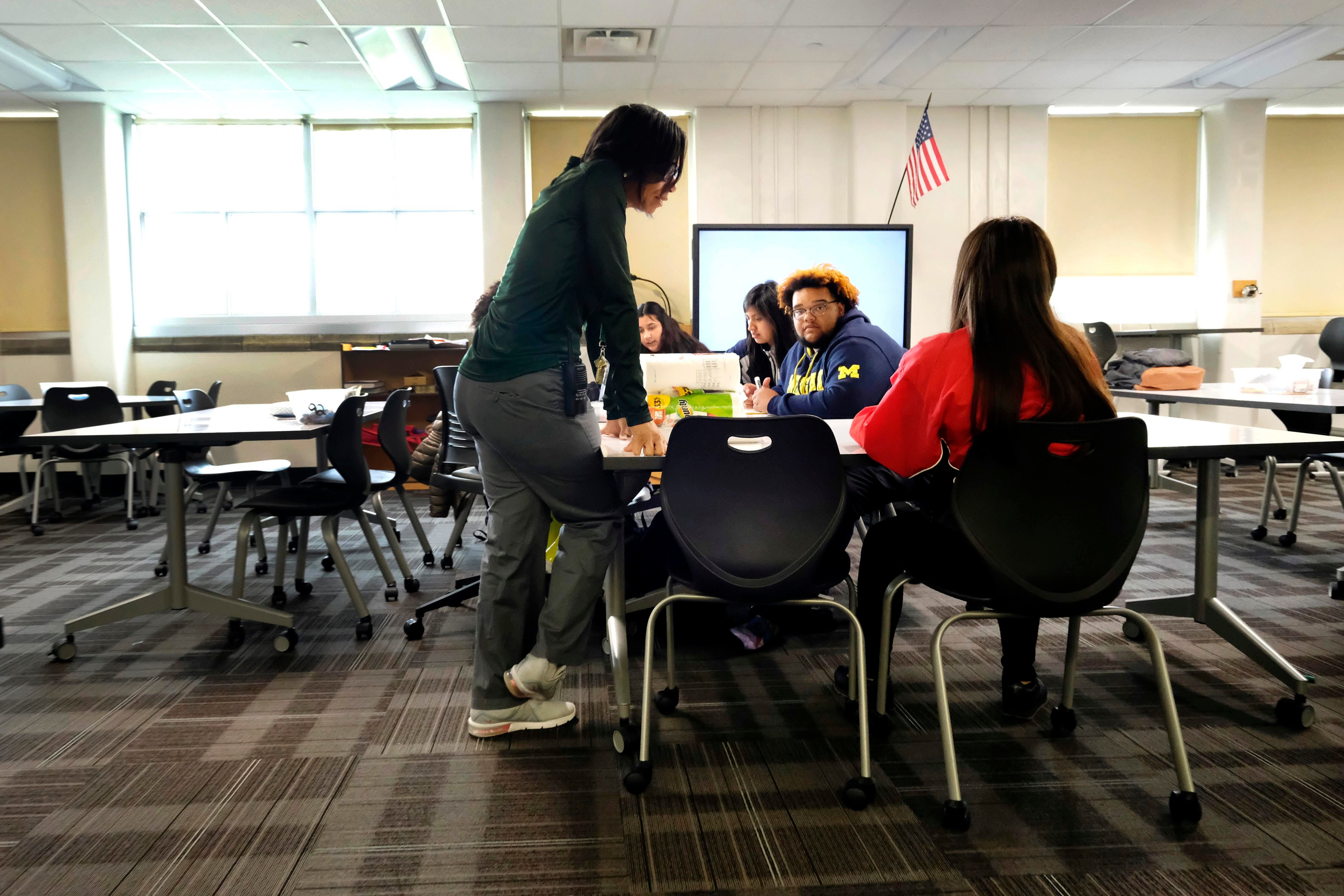It was Teacher Appreciation Week — and the week of her birthday — when Penny Miller finally tested positive for COVID.
She had dodged the illness for two years of teaching, but now was required to quarantine for five days just weeks before the end of the school year in May.
That meant losing out on a $1,500 retention bonus that Indianapolis Public Schools promised in late March to some 3,200 eligible staff members. The bonuses came with an attendance requirement that staff couldn’t take more than two sick days for the remainder of the semester.
After a rise in COVID cases in May, some IPS teachers hope the district loosens the attendance requirements for this semester’s bonus, as well as for $2,500 in future payments through fall 2023.
“It just seems totally wrong to me,” Miller said. “By the policy, they are telling people to come to work sick.”
IPS declined to say how many teachers qualified for the first round of bonuses, saying only that the number would be available in the fall, when teachers are supposed to receive this spring’s bonus. The district also did not answer whether it was considering extending the bonus to staff members who had to quarantine due to COVID.
It will spend around $14 million in Elementary and Secondary School Emergency Relief Fund dollars on three rounds of bonuses from $213 million in federal emergency money.
For the next round of bonuses, staff can miss no more than five days in the fall semester. Personal and vacation days don’t count against eligibility, according to an FAQ distributed to teachers.
Jack Hesser, vice president of the Indianapolis Education Association, said that in the last week of school, four teachers reached out to the union after testing positive for COVID, hoping the district would change its policy given the spike in cases at the end of the school year.
The district’s policy requires students and teachers who test positive for COVID to quarantine for five days, leaving some teachers feeling like they’re incentivized to hide a diagnosis in order to stay in school and keep their bonuses.
Hesser said IPS told the union it would re-evaluate its criteria for the next round of bonuses in the fall. The district did not answer a question about this plan.
Hesser said the union has been pushing IPS since last year to offer pandemic bonuses. Other districts have provided them without strings attached, he said.
“A one-time bonus of $1,000 doesn’t change everything, but when you’re struggling to feel appreciated, those things can make a huge impact,” he said.
IPS stopped updating its COVID dashboard shortly after the state health department stopped requiring schools to track cases in February.
But health department data shows COVID cases in Marion County began to rise again in mid-April after decreasing sharply in February.
Preliminary data for May 23-29, the last week of school for IPS, showed 1,198 total cases in the county.
Miller said the week after she returned to Center for Inquiry School 84, several of her students and fellow teachers were out sick. Eventually, the school required masks again. She said she wondered if anyone in the building would qualify for the bonus.
“One teacher told me, it’s almost like the bonus didn’t go to any of us who are still standing,” Miller said.
Harshman Middle School teacher Ella Hereth said she avoided COVID for two years, taking only one sick day this school year, and advocating for mask mandates at her children’s schools. Then she caught COVID just four days before the end of the school year.
“I understand we want teachers to come to school, but any attendance incentives in a pandemic don’t feel good,” Hereth said. “I’m not at school in order to keep you safe.”
Hereth said the policy is particularly frustrating for teachers who got sick after being cautious.
“It feels like you did the right thing all along and then you’re punished,” she said. “Like a student who did all their work and then missed out on a bunch of extra credit at the end.”
Aleksandra Appleton covers Indiana education policy and writes about K-12 schools across the state. Contact her at aappleton@chalkbeat.org.







